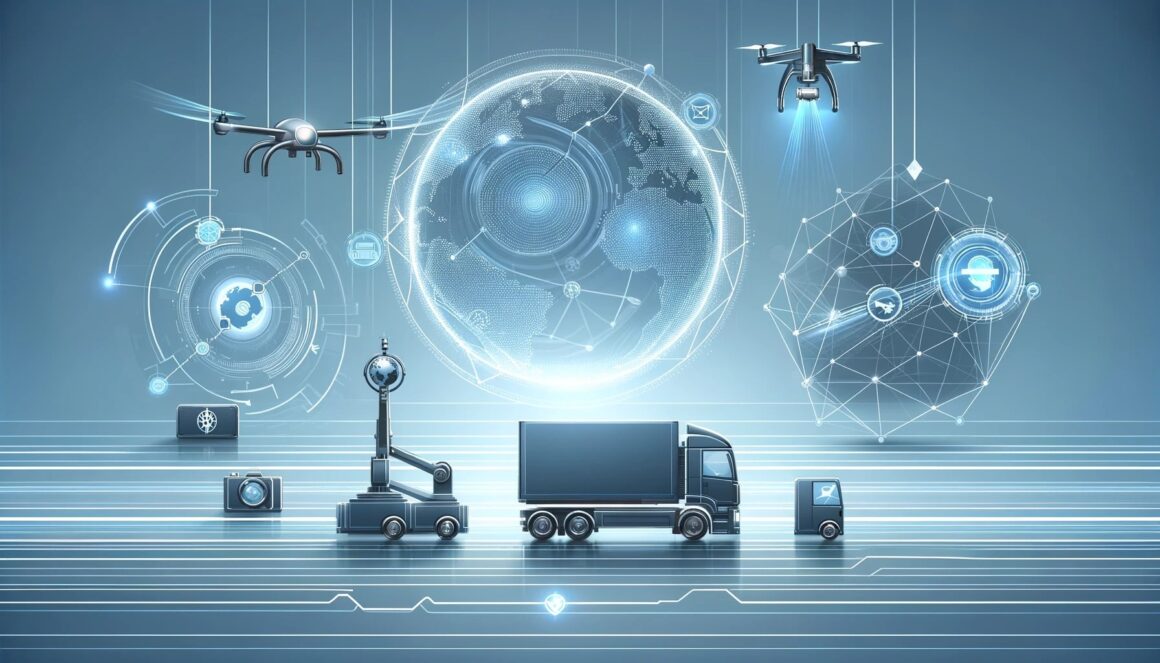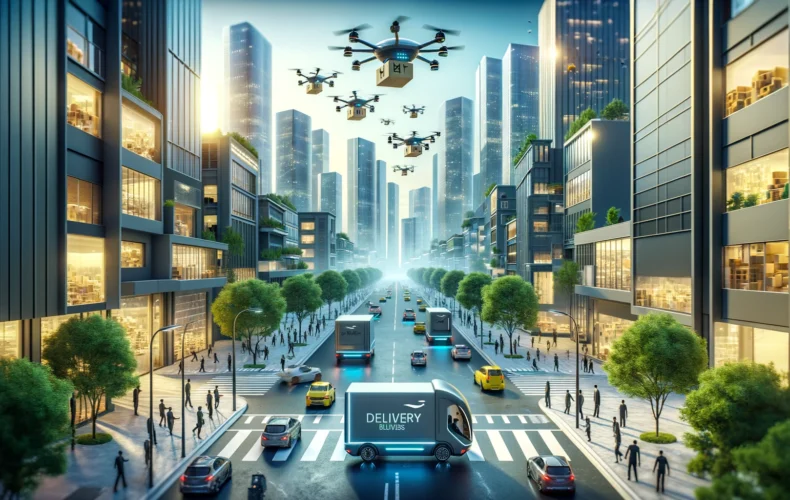The world of logistics has always been a critical component of the global economy, but with the advent of new technologies, it’s undergoing a transformation that is both rapid and profound. This comprehensive article will explore the various aspects of tech innovation in the logistics sector, highlighting key advancements, their impacts, and potential future developments.
Introduction to Logistics and Technology
Logistics, fundamentally, involves the management of the flow of goods between the point of origin and the point of consumption. The introduction of technology in this sector has revolutionized how goods are transported, tracked, and delivered, enhancing efficiency, reducing costs, and improving customer service.
Key Technological Innovations in Logistics
a. Automated Warehouses
- Robotics: Robotics are now integral in warehouses for tasks like sorting, packing, and moving goods. Examples include Amazon’s Kiva robots.
- Automated Guided Vehicles (AGVs): These are used for transporting goods within a warehouse without human intervention.
b. Advanced Tracking Systems
- RFID & GPS Tracking: These technologies provide real-time tracking of goods, significantly improving inventory management.
- IoT (Internet of Things): IoT devices collect and transmit data on the conditions and location of goods, facilitating better asset monitoring.
c. Drone and Autonomous Vehicle Deliveries
- Drones: Companies like Amazon and UPS are experimenting with drones for last-mile deliveries.
- Self-driving Trucks: Autonomous trucks, potentially revolutionizing long-haul transportation, are being tested by companies like Waymo and Tesla.
d. Blockchain in Logistics
- Transparency and Security: Blockchain technology offers a secure, transparent way to track the production, shipment, and receipt of products.
e. AI and Machine Learning
- Predictive Analytics: AI is used for forecasting demand, optimizing routes, and predictive maintenance of vehicles and machinery.
- Customer Service: AI-powered chatbots and virtual assistants are enhancing customer interaction and service.
Impacts of Technological Innovation in Logistics
a. Enhanced Efficiency and Productivity
- Reduced Human Error: Automation reduces mistakes in inventory management and order processing.
- Faster Processing: Technologies like AI and robotics speed up processing times in warehouses.
b. Cost Reduction
- Optimized Routes and Fuel Use: AI algorithms can find the most efficient routes, reducing fuel costs and time.
- Lower Labor Costs: Automation reduces the need for manual labor.
c. Improved Customer Satisfaction
- Real-time Tracking: Customers can track their orders in real-time, enhancing transparency and trust.
- Faster Delivery Times: Technological advancements lead to quicker deliveries.
Challenges and Concerns
a. Cybersecurity Risks
- The increased use of digital technologies raises concerns about data security and cyber attacks.
b. Job Displacement
- Automation could lead to job losses in traditional logistics roles, necessitating retraining and reskilling programs.
c. High Initial Investment
- Implementing advanced technologies can be costly and may not be feasible for all businesses.
The Future of Logistics Technology
a. Integration of Advanced Technologies
- The future will likely see a more integrated approach, combining AI, IoT, and blockchain for comprehensive logistics solutions.
b. Sustainability
- Emphasis on eco-friendly logistics solutions, such as electric vehicles and optimizing routes to reduce carbon emissions.
c. Enhanced Customer Experience
- Continued focus on delivering personalized, efficient, and transparent services to customers.
Conclusion
The intersection of technology and logistics is creating a new landscape where efficiency, speed, and accuracy are paramount. While the potential of these technologies is enormous, the industry must also navigate the challenges they present. The future of logistics is not just about transporting goods but doing so in a way that is smarter, faster, and more customer-centric.
This comprehensive look at tech innovation in logistics highlights the transformative power of technology in this vital sector and points towards a future that is both exciting and challenging. As technology continues to evolve, so too will the ways in which we manage the journey of goods across the globe.



